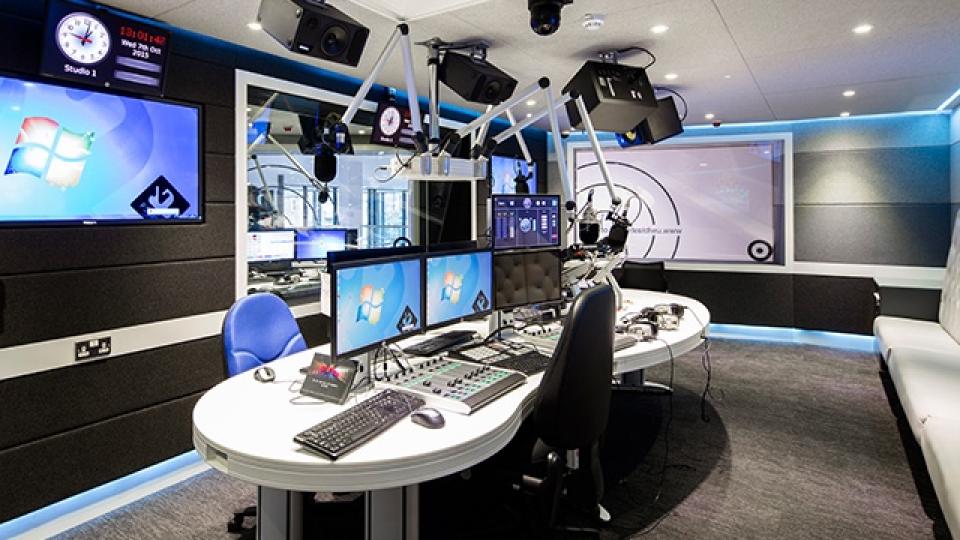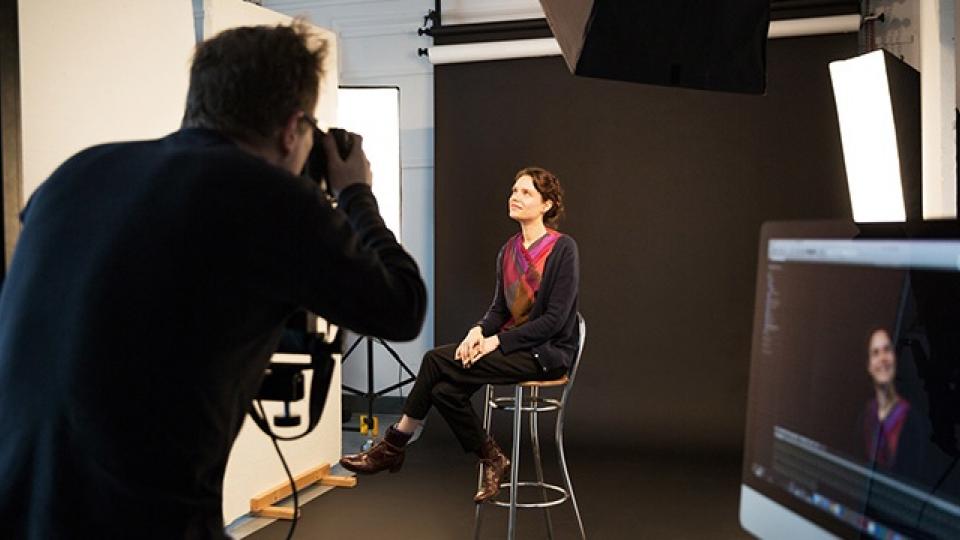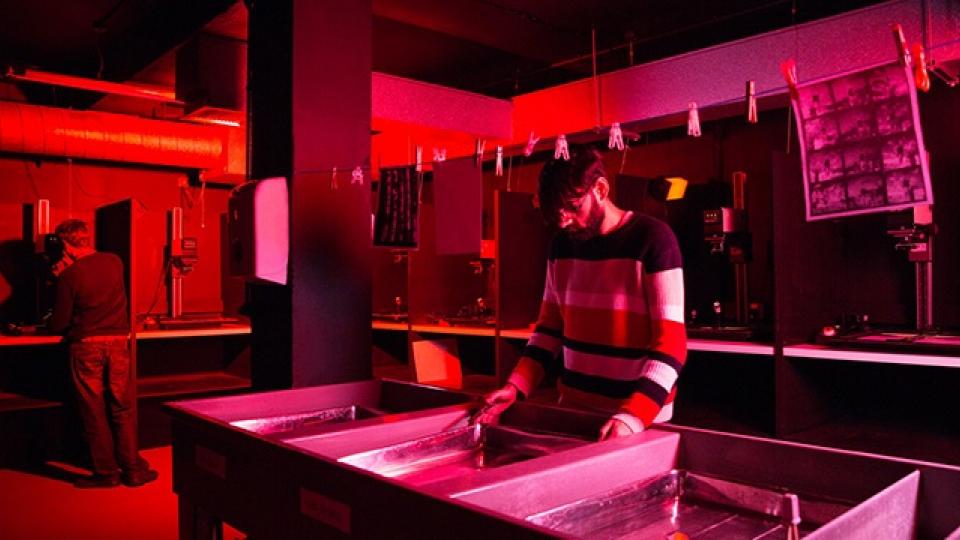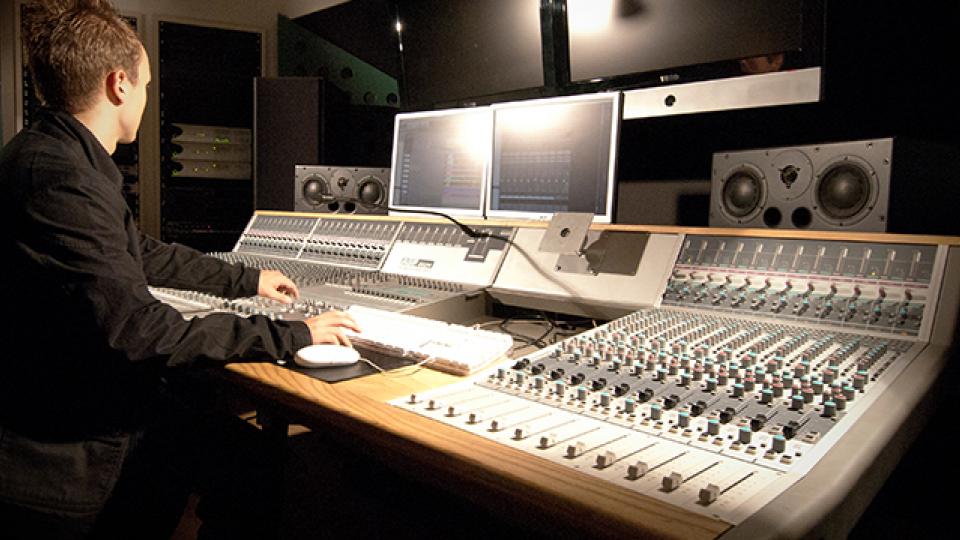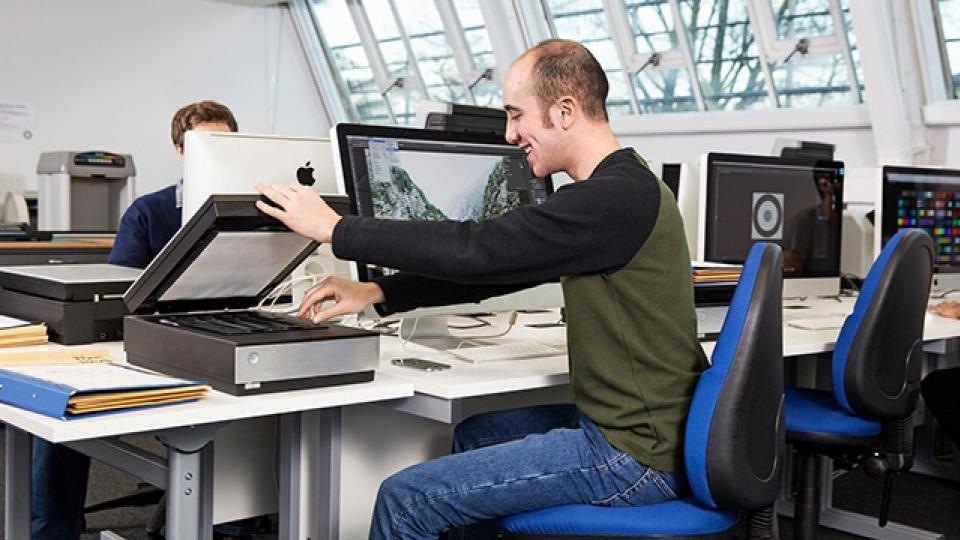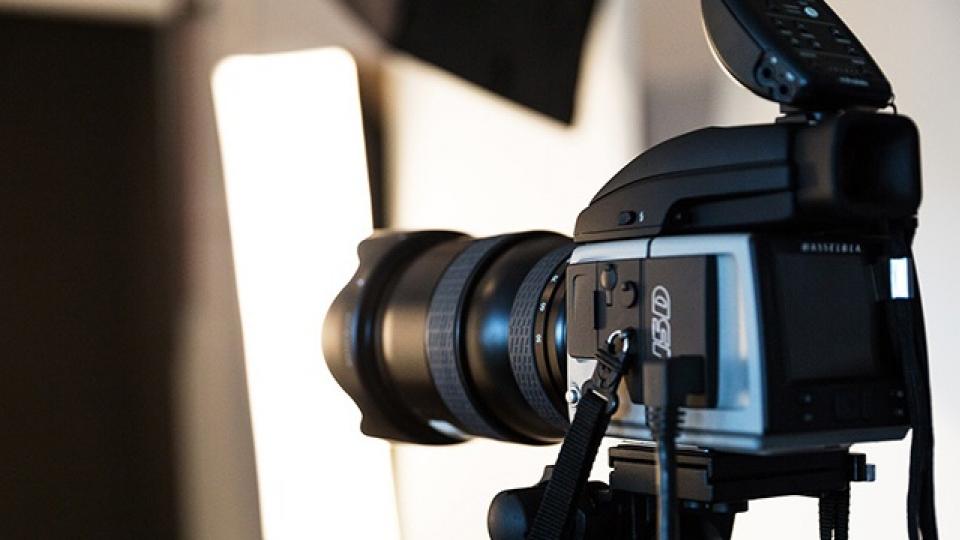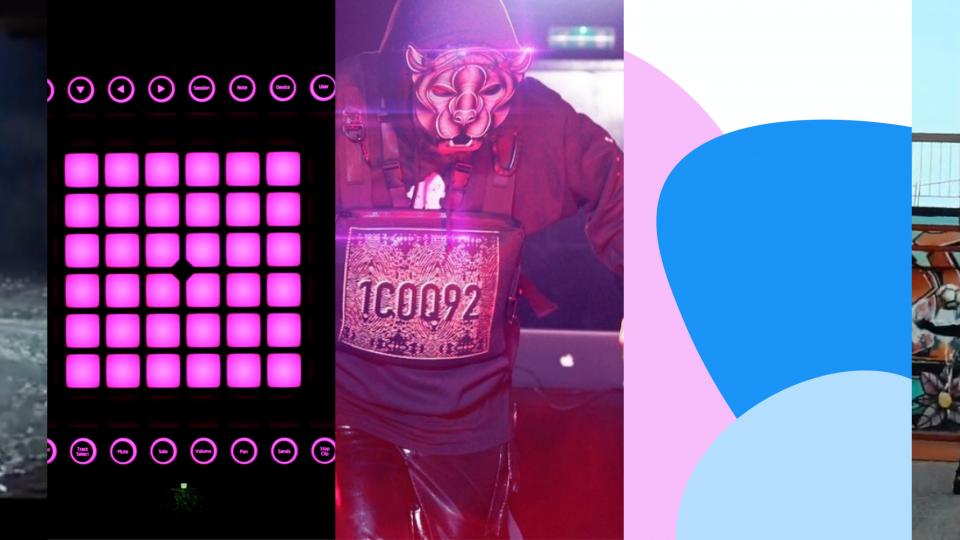
Media and communications
Communications and Journalism
Our innovative media and communications degree courses at the University of West London cover a broad range of specialisms, from podcasting and social media production to launching your own media business.
All our courses emphasise emergent trends in both traditional media and new media, to equip you with the flexibility and broad skillset required for this competitive, fast-moving industry.
Browse our wide array of media and communications courses below, explore our facilities, see some of our students work at ARTSFEST, or find out what potential media and communication jobs and careers await you on graduation.
UWL Advertising, Branding and Communication students’ work wins high praise from Orange
Students Bethonie Waring and Kolade Shasi came up with the winning pitch out of four pairs of students who worked on advertising campaigns for Orange Business, for a course module which connects students with industry.
Media and communications undergraduate courses
-
BA (Hons) English and Media and Communications (West London Campus)
West London Campus
-
BA (Hons) Media and Communications (West London Campus)
West London Campus
Media and communications postgraduate courses
-
PgDip Advertising, Branding and Communication (West London Campus)
West London Campus
-
MA Advertising, Branding and Communication (West London Campus)
West London Campus
Course videos
-
BA (Hons) Broadcast and Digital Journalism
-
BA (Hons) English and Media and Communications
-
BA (Hons) Content, Media and Film Production
-
MA Advertising, Branding and Communication
BA (Hons) Broadcast and Digital Journalism
BA (Hons) English and Media and Communications
BA (Hons) Content, Media and Film Production
MA Advertising, Branding and Communication
Accordion
-
Why study a media and communications degree at the University of West London?
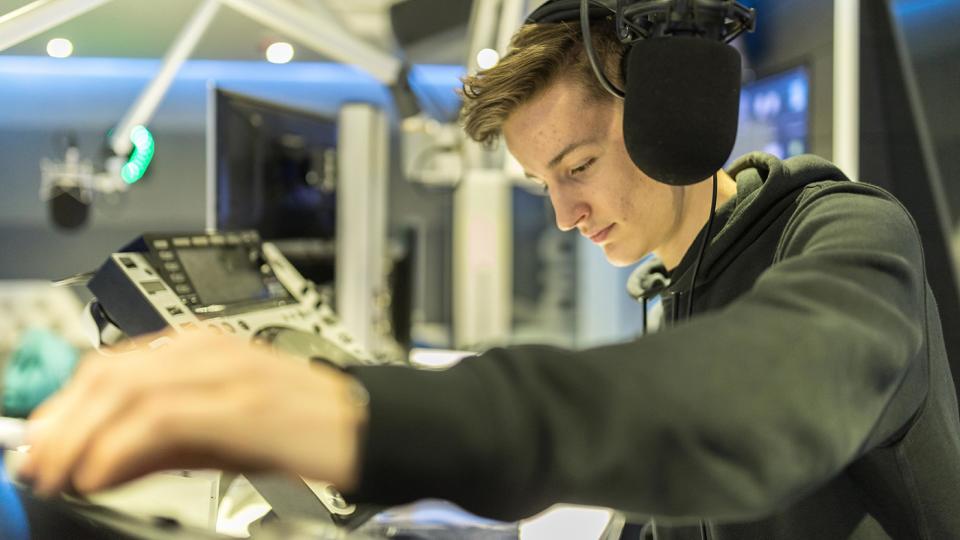
Throughout your media course or communications degree, you will have access to industry-standard facilities from radio and TV studios to Mac labs. Our close links with industry ensure your course instils you with up-to-date knowledge and skills, and many of our courses include opportunities for work experience at leading media organisations.
We also host many guest lectures from industry practitioners every year. Based in dynamic West London, you’ll learn from a dedicated team of experienced lecturers and you’ll benefit from lifelong support from our careers service.
Click on one of the media and communications course links above to learn more about your options, our facilities, and your career options after graduation.
-
What can I do with a media and communications degree?
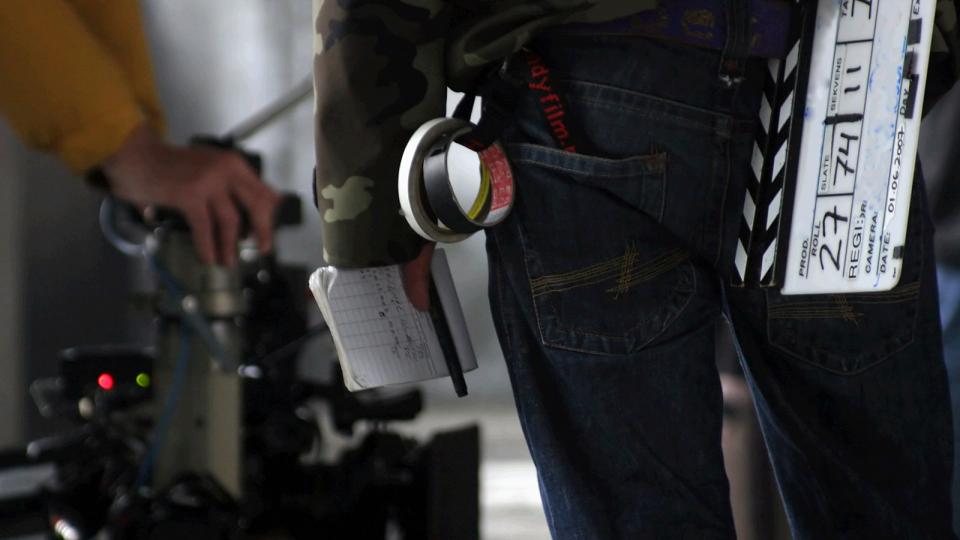
As well as pursuing a career in traditional media such as, for example, becoming a journalist or broadcast assistant, you may be interested in related industries where media skills are in demand, like copywriting, web content management or social media marketing.
Your career options will depend in part on the course you study, so take a look at the dedicated page for the course that interests you by clicking the relevant link above. From there you can browse to ‘Career and study progression’ to learn more.
-
What do I need to study media and communications?
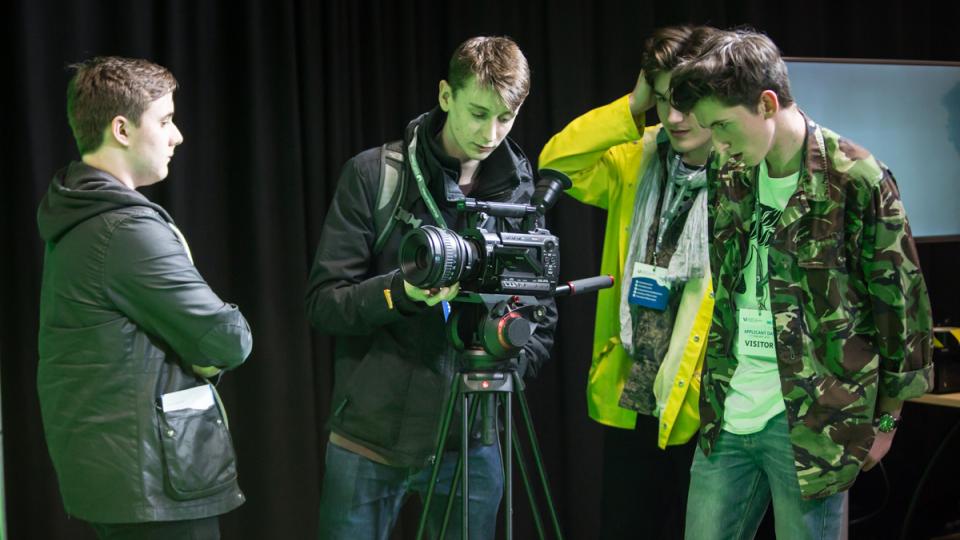
Entry requirements vary course by course, so browse to the relevant media and communications course page to find out exactly what you’ll need to apply successfully.
If you do not have the right subjects or grades at level 3, you might be interested in one of our foundation-year courses. These are four-year degree courses that include a foundation year to prepare you for undergraduate-level work.
Facilities
Watch the video to explore the facilities we offer our students of media and communications.
Blast Radio Studios
Blast Radio studios simulate contemporary commercial radio operations. As a student on a relevant course, you'll use the studio as part of your studies, and can also use it throughout the year on our student-run station, Blast FM.
Photography Studios
Our two photography studios are interlinked to allow for larger shoots, and they are equipped with Profoto flash lighting, Hasselblad H4D50s (high-end medium format digital cameras), background rolls, and other tools needed to produce professional-grade work.
Photographic darkroom
The photographic darkroom is geared toward crossover experimentation between traditional and digital processes. We give training on digital negatives, cyanotypes, salt printing, bromoil process and liquid emulsion.
University audio facilities
You'll have access to the University's range of audio facilities, including recording studios and music practice rooms.
Digital Print Bureau
The Digital Print Bureau has high-tech workstations, fully colour-calibrated professional screens and a wealth of industry-standard software. You can create professional-grade images from our printers and also have access to top-range scanning machines.
ARTSFEST
Where this course can take you
Job roles
Once you graduate you could go on to work in fields such as:
- film
- television
- radio
- publishing
- journalism
- radio broadcasting
- research
- advertising
- public relations
- design
- photography
- new media.
Additionally, you may decide to specialise in a related area or explore a new subject. Please see our postgraduate courses for a range of options.












